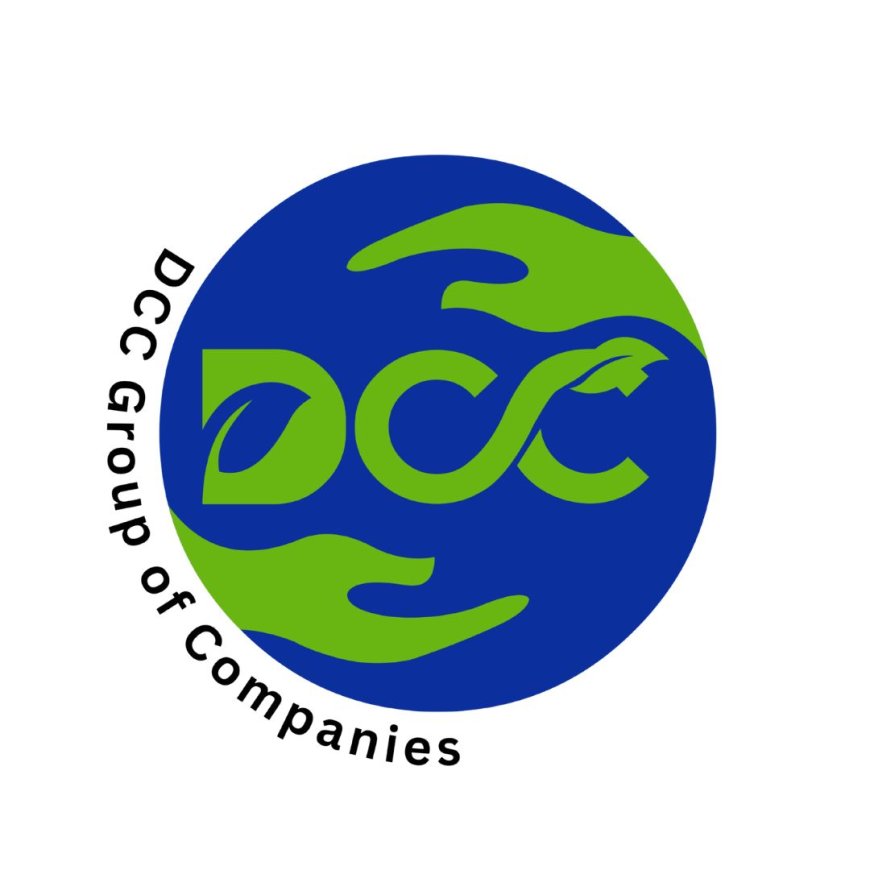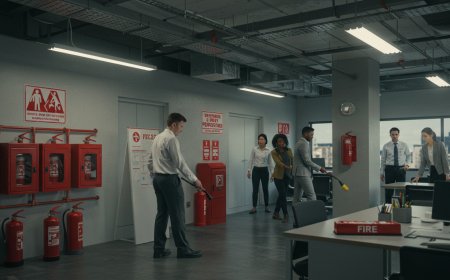Eco-Revolution: Construction and Demolition Waste Processing Plants Boost Sustainability - DCC Group
Construction and Demolition (C&D) waste management in India has become a pressing concern as the construction sector experiences exponential growth.

Indias construction boom, fueled by rapid urbanization, generates approximately 150 million tonnes of construction and demolition (C&D) waste annually, yet only 1% is recycled, according to CPCB data. This C&D waste, comprising concrete, bricks, wood, and metals, clogs landfills, occupies over 10,000 hectares, and contributes to environmental degradation through dust and leachate. DCC Group, a leader inC&D waste management, is driving an eco-revolution with its advanced C&D waste recycling plants. By prioritizing C&D waste recycling and efficient disposal of C&D waste, DCC is reducing landfill dependency, reclaiming urban land, and aligning with the Swachh Bharat Mission (SBM) 2.0 to foster a sustainable India in 2025.
The C&D Waste Challenge in India
C&D waste, generated from construction, renovation, and demolition activities, poses significant environmental and logistical challenges. Unscientific disposal of C&D waste in open dumpsites leads to air pollution from dust, soil contamination, and blocked drainage systems, exacerbating urban flooding. The C&D Waste Management Rules, 2016, mandate recycling and reuse, requiring urban local bodies (ULBs) to establish C&D waste recycling plants. However, limited infrastructure and awareness hinder progress. DCC Group addresses this gap with innovative C&D waste management solutions, transforming debris into valuable resources and supporting Indias circular economy.
DCC Groups C&D Waste Recycling Plants
DCC GroupsC&D wasterecycling plants are at the forefront of sustainable waste management, processing diverse materials like concrete, bricks, and metals with advanced technologies. Their facilities employ a systematic process to ensure efficient C&D waste recycling and disposal:
-
Collection and Segregation: C&D waste is collected from construction sites, demolition zones, and municipal sources. Initial sorting removes hazardous materials like asbestos, followed by manual or mechanical segregation of recyclable fractions.
-
Crushing and Screening: Heavy-duty crushers reduce concrete and bricks into aggregates, while vibrating screens and trommels separate materials by size. Magnetic separators extract metals for recycling.
-
Processing and Recycling: Recycled aggregates are processed into sand, gravel, or bricks for construction. DCCs plants produce high-quality recycled concrete aggregates (RCA) meeting BIS standards, suitable for roads and non-structural applications.
-
Disposal of C&D Waste: Non-recyclable residuals, minimized to less than 10%, are disposed of in engineered landfills, ensuring compliance with CPCB guidelines.
DCCs C&D waste recycling plant in Delhi, processing over 2,000 tonnes daily, exemplifies their capacity to handle large-scale waste streams. Their Bodinayakanur project reclaimed 3.05 acres by recycling 22,500 cubic meters of waste, showcasing effective waste land reclamation.
Benefits of DCCs C&D Waste Management
DCC Groups C&D waste management delivers multifaceted benefits:
-
Reduced Landfill Dependency: By recycling up to 90% of C&D waste, DCCs plants minimize landfill use, reducing dust pollution and freeing urban land for development.
-
Resource Recovery: C&D waste recycling produces aggregates, sand, and bricks, reducing reliance on virgin materials. Each tonne of recycled aggregate saves 0.5 tonnes of CO2 emissions, per industry estimates.
-
Environmental Protection: Proper disposal of C&D waste prevents soil and groundwater contamination, mitigating health risks from dust and leachate. DCCs dust suppression systems, like fog cannons, further reduce air pollution.
-
Economic Efficiency: Recycling creates jobs, with Indias waste sector employing over 175,000 workers in 2020. Recycled materials lower construction costs by up to 20%, benefiting developers and ULBs.
-
Regulatory Compliance: DCCs solutions align with the C&D Waste Management Rules, 2016, helping ULBs meet mandatory recycling targets and avoid penalties.
Challenges and Innovations
C&D waste management faces challenges, including high setup costs for C&D waste recycling plants, inconsistent waste quality, and limited awareness among stakeholders. DCC addresses these with modular, scalable plants that reduce capital expenditure. Their AI-driven sorting systems, using hyperspectral imaging, achieve 95% accuracy in segregating materials, enhancing recycling efficiency. Mobile crushing units enable on-site processing, reducing transportation costs and emissions.
DCCs community engagement programs educate contractors and municipalities on proper C&D waste segregation at the source, improving input quality. Their integration of IoT-enabled monitoring ensures real-time performance optimization, while partnerships with cement industries repurpose non-recyclable fines as alternative raw materials, further reducing waste.
DCC Groups Vision for 2025
In 2025, DCC Group is expanding its network of C&D waste recycling plants to meet SBM 2.0s goal of garbage-free cities by 2026. They aim to process 50% more C&D waste annually, establishing facilities in tier-1 and tier-2 cities like Mumbai and Coimbatore. Their focus on research and development explores advanced recycling techniques, such as geopolymer concrete production from C&D waste, to enhance material reuse. Collaborations with ULBs and private developers ensure widespread adoption, while compliance with CPCB and BIS standards guarantees quality and safety.
DCCs Delhi plant, with a capacity of 2,000 tonnes per day, serves as a model for scalable C&D waste management. By integrating dust suppression and water-efficient processing, DCC minimizes environmental impact, aligning with the National Clean Air Programme (NCAP). Their biomining initiatives complement C&D waste recycling, addressing mixed legacy waste in dumpsites like Ghazipur, which processed 15 lakh tonnes, reclaiming significant land.
A Sustainable Urban Future
DCC GroupsC&D waste recyclingplants are redefining waste management in India. Through efficient C&D waste management, C&D waste recycling, and disposal of C&D waste, they transform debris into valuable resources, reducing environmental pollution and supporting urban development. Their innovative approach aligns with SBM 2.0 and global circular economy goals, proving that sustainable C&D waste management can drive progress. As India strives for a landfill-free future by 2026, DCC Groups leadership in recycling and land reclamation is paving the way for a greener, more sustainable urban landscape in 2025.





















![Top 11 Real Estate Mobile App Developers in Riyadh, Saudi Arabia [2025 Edition]](https://www.philadelphialivenews.com/uploads/images/202506/image_430x256_68621a9e48997.jpg)
























